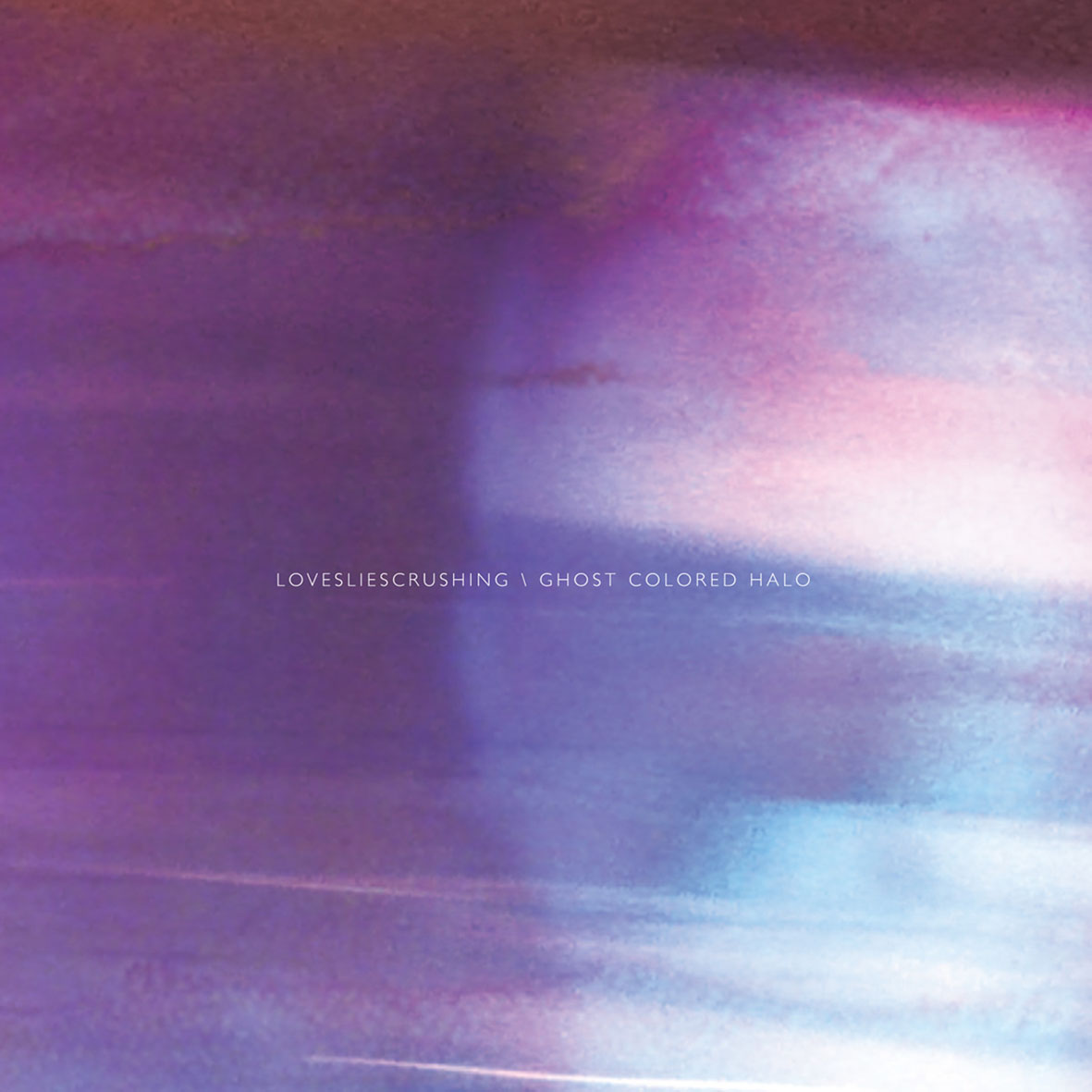 Lovesliescrushing's 1992 debut bloweyelashwish inarguably stands as one of the greatest shoegaze albums of all-time, but its dreamy, warped guitars had the unfortunate effect of dooming the hapless Scott Cortez to a lifetime of Kevin Shields comparisons, a situation that is probably not helped at all by the Shields-ian infrequency of LLC's major releases.  Case in point: Ghost Colored Halo is the first album that Cortez and bandmate Melissa Arpin-Duimstra have actively recorded together in over a decade.  That reunion seems to have been a fruitful one creatively, but not without some caveats.  I would not necessarily call this effort a return to form (its a bit more understated and drone-minded than Cortez's best work), but its better moments are are just as sublimely beautiful as ever.
Lovesliescrushing's 1992 debut bloweyelashwish inarguably stands as one of the greatest shoegaze albums of all-time, but its dreamy, warped guitars had the unfortunate effect of dooming the hapless Scott Cortez to a lifetime of Kevin Shields comparisons, a situation that is probably not helped at all by the Shields-ian infrequency of LLC's major releases.  Case in point: Ghost Colored Halo is the first album that Cortez and bandmate Melissa Arpin-Duimstra have actively recorded together in over a decade.  That reunion seems to have been a fruitful one creatively, but not without some caveats.  I would not necessarily call this effort a return to form (its a bit more understated and drone-minded than Cortez's best work), but its better moments are are just as sublimely beautiful as ever.
It is very difficult for an outsider to fully grasp lovesliescrushing's creative trajectory, as their discography is filled with diversions, experiments, remixes, side projects, and unearthed/reworked early recordings.  However, in many ways, it seems quite reasonable to view Ghost Colored Halo as the long-awaited follow-up to 1996's Xuvetyn, as Scott and Melissa are back to recording woozy, dreamlike soundscapes together on analog tape rather than exploring the potential of the unaccompanied human voice or digitally assembling albums from their seemingly vast backlog of unused recordings.  In fact, the duo have even surpassed the aesthetic purity of their early days by recording this album "live" at Melissa's house with no overdubs.
Musically, these pieces do not sound at all like they were recorded in single takes, as Cortez is something of a loop wizard.  On the more drone-like pieces, like "Blemished Sunspot" and "The Wounds That Won't Heal," Scott piles on layer after layer until he achieves a churning sea of guitar noise, but the more compelling and distinctive moments tend to be the more fragile, delicate ones.  For example, the album's clear highlight is "The Tiger Hunts Alone," which is built upon little more than a bittersweet, languorously repeating arpeggio and Melissa's ghostly, heavily reverbed cooing.  That apparent simplicity is deceptive, however, as Cortez beautifully manipulates the coloration and dynamic of the central motif with subtle rumbles, swells, shimmers, and after-images.  The epic closer, "Blacklight Thundering Halo," is quite stunning as well, evoking fleeting flickers of light emerging from masses of giant, slow-moving dark clouds.
Unfortunately, there is a definite downside to recording in such a back-to-basics way: the sound quality tends to suffer. I am generally not passionate about sound quality at all, but the murkiness of this particular effort is a bit of a problem for me, as it makes this a significantly less dynamic and distinctive album than it should be.  A somewhat muddy recording of Scott Cortez painstakingly creating drone music with complexly interweaving layers of guitars sounds an awful lot like drone music by any number of other artists, which is very frustrating.
Of course, some aspects of the album actually benefit from the corroded sound quality (Arpin-Duimstra's vocals, the cleaner, more fragile guitar motifs, etc.), but the overall effect is not ideal.  I understand that the process was creatively invigorating and I am certainly glad to have Scott and Melissa working together again, yet I cannot help but feel that this could have been a much better album without the self-imposed limitations.  While Cortez has definitely proven that he is an absolute master at wielding loops and effects pedals in real-time, that feat does not matter all that much on the listening end.  That said, this effort still boasts some great songs (and no bad ones), so long-time fans will find a lot to enjoy.  My disappointment is probably rooted much more in my very high expectations than in Ghost Colored Halo's shortcomings–I wanted Cortez to reclaim his throne as a dream-pop visionary, but I only got an enjoyable drone album with a few flashes of brilliance.  I suppose things could be a lot worse.
 
Read More

